Graham Reid | | 6 min read
Thriller!
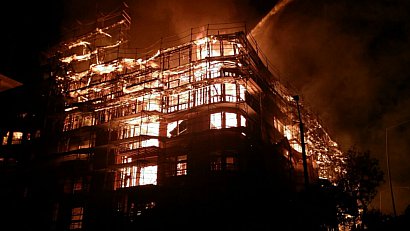
In his 1974 philosophical narrative Zen and the Art of Motorcycle Maintenance, the American author Robert M. Pirsig writes of being at the home of some friends where there is a constantly dripping tap.
“If you try to fix a faucet and your fixing doesn’t work then it’s just your lot to live with a dripping faucet,” he writes.
“This made me wonder to myself if it got on their nerves, this drip-drip-drip, week in, week out, year in, year out, but I could not notice any irritation or concern about it on their part, and so concluded they just aren’t bothered by things like dripping faucets. Some people aren’t.”
Or put another way, as Robert Wilonsky of the Dallas Observer said, favourably, of Tom Waits' music: “Either you like the sound of a barking dog, or you buy yourself a cat”.
Those of us who can live with dripping taps, barking dogs, car alarms at 2am, the rumble of passing trucks and other impositions – “Hey, life has surface noise,” said Iggy Pop when someone complained about the quality of old vinyl records – also happily embrace music which, for others, pushes to the edge of human tolerance.
Most people take comfort in the familiar, don't want their music to impose itself too much and live with the comforting certainties which most artists deliver.
Others have no trouble with screaming Yoko Ono, Lydia Lunch, punishing industrial rock . . .
And Pere Ubu.
This singular group emerged out of Cleveland, Ohio in the mid-late Seventies – helmed by the fiercely intelligent and sole constant David Thomas who has also run a parallel solo career – are still going and their sound even now challenges most sensibilities.
One of the most commanding, demanding and inventive groups of their time – their sonic art was post-punk before punk, avant-garage when the term hadn't even been thought up – Pere Ubu have frequently been hailed by writers and fellow travelers . . . but it would too much to expect them to ever approach mainstream attention, nowhere close to the distant margins of the mainstream.
In New Zealand even out-there student radio rarely played them at the time (I delighted in introducing their sound whenever I could in the early Eighties, even to listeners of Radio Pacific where I had free format programme for a couple of eight-month periods in the early Eighties) and to the best of my knowledge they never had a clip for television.
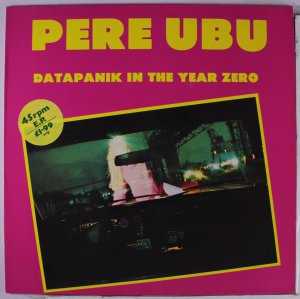
Their debut EP Datapanik in the Year Zero in 1980 on Radar Records – which introduced them to New Zealand audiences (and elsewhere) – got international distribution (through WEA in New Zealand).
It was a compilation of their early singles Heart of Darkness and 30 Seconds Over Tokyo (utterly extraordinary) recorded in late '75, Cloud 149 and Untitled from '76, and Heaven recorded January 77. It was dedicated to Anton Fier, a name even then somewhat obscure but to those in the know a flag of independence waved high.
Soon enough they were signed to Rough Trade (for their debut album The Modern Dance in '78) and subsequently Chrysalis (for Dub Housing, also '78) for distribution deals . . . but really, no one knew what to do with them.
 How do you market what one writer
called “the sound of things falling apart”?
How do you market what one writer
called “the sound of things falling apart”?
In truth and hindsight, much of their early output on those two albums and the EP – late last year represented in the four-record vinyl box set/download Elitism For The People 1975-1978 (Fire Records) with live tracks – are much more approachable than they were at the time.
Post-punk/noisecore and post-rock have all prepared the ground for Pere Ubu to be considered anew.
Their breathtaking debut The Modern Dance -- long an Essential Elsewhere album -- announced itself with a genuinely annoying, repetitive high pitched sound (kinda like my tinnitus turned up) on the opener Non Alignment Pact which comes off like a garage band fronted by a man on the verge of a nervous breakdown, with a chanty chorus for singalong effect.
The title track which follows is almost a pop, but that “almost” is heavily loaded because it comes with strange interludes between the chipper bass line and the sound of primitive synth washes and stabs from Allen Ravenstine.
After that if you are bewildered or hooked, the trip becomes no less unusual, discordant, spooky, minimalist/maximalist and disturbing.
They were dropped by their distributor.
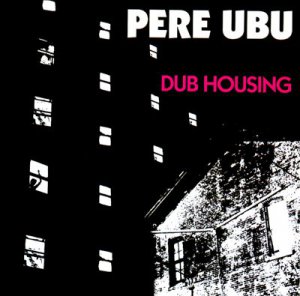 Dub Housing is in some ways both more
conventional and more defiant. This was experimental avant-garde rock
wrapped up with willful primitivism and a subversive, dissonant
approach to pop and rock genres like dance music and the emerging New
Wave movement.
Dub Housing is in some ways both more
conventional and more defiant. This was experimental avant-garde rock
wrapped up with willful primitivism and a subversive, dissonant
approach to pop and rock genres like dance music and the emerging New
Wave movement.
With disembodied voices samples, sonic passages which come of like a nightmare scene or the aural accompaniment to Eraserhead (Thriller!), and Thomas' idea of a date movie was probably Freaks.
One piece is titled Caligari's Mirror but they also offer (Pa) Ubu Dance Party with Thomas yelping over the primitive funk beat and Ravenstine's piano. His twitchy, jerky deliver makes David Byrne's style at this time sound like Bing Crosby.
Across both these two albums – where industrial treble-heavy funk crash tackles avant-rock and a migraine – guitarist Tom Herman sounds like a man who could play a very straight bat to conventional rock of the day (Talking Heads, Blondie and others in downtown New York) but chose not to.
Dub Housing was a step up from The Modern Dance (and perhaps more towards the centreline in its skewering of convention) and is an exceptional, outsider album.
It too got them dropped by their distributor.
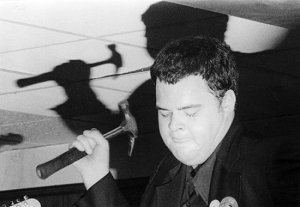 If it hadn't been for the critical
acclaim, they might have become just another casualty. But Thomas and
his cabal were nothing if not persistent. And – like Frank Zappa
after electro-shock therapy – they had something to say about
accepting norms, whether they be social, political or musical.
If it hadn't been for the critical
acclaim, they might have become just another casualty. But Thomas and
his cabal were nothing if not persistent. And – like Frank Zappa
after electro-shock therapy – they had something to say about
accepting norms, whether they be social, political or musical.
Just say, “No” . . . with fuzz, distortion and free-flow funk with a voice like a conspiracy-madman who knows the truth shouting down a telephone to the suicide hotline.
And yet.
And yet there is also fractured beauty and wit abut this early period of Pere Ubu.
You don't write songs with titles like Drinking Wine Spodyody (nothing to do with the Sticks McGee blues song of similar title from the Forties, other than be an existential version of the same angry dyspeptic subject), Laughing, Sentimental Journey (opening with the sound of wine bottles hitting the floor so no, not the Les Brown crooner ballad from the Forties either) and Chinese Radiation if you don't have a deeply embedded sense of humour . . . somewhere behind the nails-on-blackboard sound.
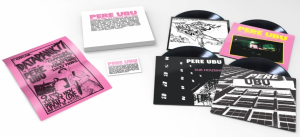 The live tracks – most previously
unreleased as far as I can tell – confirm they could deliver this
in concert with even more energy. The final, adrenalin-fueled live
song was written by almost-member and Creem magazine critic Peter
Laughner who died of an overdose in '77.
The live tracks – most previously
unreleased as far as I can tell – confirm they could deliver this
in concert with even more energy. The final, adrenalin-fueled live
song was written by almost-member and Creem magazine critic Peter
Laughner who died of an overdose in '77.
It is Life Stinks.
Reviewing them in mid Eighties after a show in New York, NME's Richard Grabel said their “modern dance is part dance macabre, the skeletons of angst and industrial waste, part Thomas' cracked, off-kilter jig and part genuine body-party rhythm . . . Ubu have compassion and a real sense of humour . . . they are one of the important bands”.
All true.
Pere Ubu possessed a rare, anti-music genius, created exceptional music and made sonic architecture out of it.
The evidence is all on the Elitism For the People.
Check it out . . . if you fink you is 'ard enuff.
.
Elitism for the People is available on download (the vinyl has sold out) through Fire Records here.
Part Two of this reissue series is reviewed here; Part Three here and Part Four here. There is also this.
David Thomas was interviewed in 1999 (here) and in 2016 (here)
.
Pere Ubu's David Thomas died in April 2025. He was 71

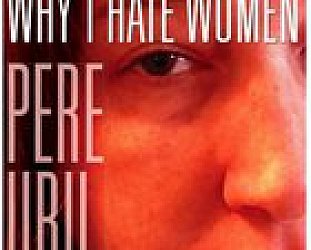
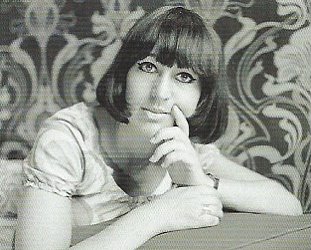
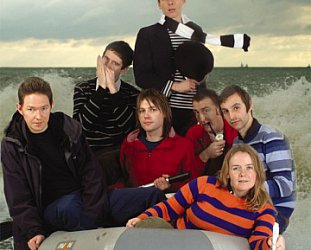
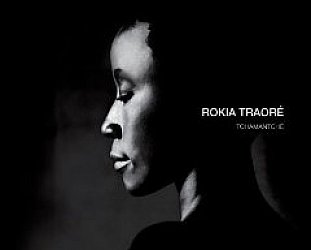
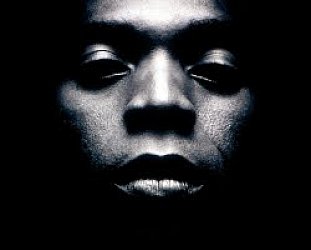
post a comment